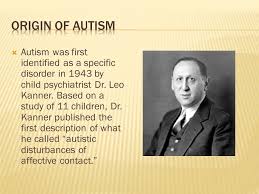Moms get blamed for everything. Everything their kids do, say, or think. The belief that moms are responsible for every nuance of their children’s behavior is so deeply engrained in our lifestyle that it’s hard not to notice without doing two minutes of Internet research or thinking critically for an equivalent interval.
Overlook the other parent. Ignore the influence of peers and schools. Discount the impact of neighbors and neighborhoods. Everything is the fault of mom.
Disregard the impact of television commercials and video games. There’s mom, standing on top of a mountain with lightning bolts in both hands, all-powerful, capable of shaping her child’s every gesture, every exam grade, every athletic result. A kid pockets a candy bar from the local Kwik-E-Mart and it’s something that mom did wrong from being too lenient or too controlling or both too indulgent and too conservative on the same day.
Moms getting blamed for everything reminds me of pre-literate societies believing they could affect the weather by throwing people (again, women!) into a volcano.
Ancient times? Not so much. In the middle of the last century, autistic children were thought to be the proximate result of moms who weren’t appropriately warm and nurturing. No less an august physician and psychiatrist than Leo Kanner who first wrote about infantile autism in 1943, suggested in a subsequent paper that “maternal lack of genuine warmth” caused autism.
Ouch! We are now pretty much convinced that organic rather than environmental factors are responsible for autism. (Although I suppose that, in fairness, the fringe folks who think that autism is caused by vaccines should be given their shot. Sorry.) Nobody believes that autism results from unloving moms any more than anyone reasonably suggests that throwing girls off a cliff will bring rain.
Just as sensible parents focus on our children’s motivation rather than their results, moms should be given a break as well. Raising kids with love in our hearts and their best intentions uppermost in our minds is the best we can do. Kids have a band width of outcomes. If I had put in only three 20-mile practice runs rather than eight, I might be looking back on a personal best of a 3:15 marathon rather than a 3:09. If I had trained harder and better, I might have covered 26.2 miles in 3:06 rather than 3:09. Moms shouldn’t be judged as 100% responsible for how their kids turn out on the athletic field and in the classroom any more than my mom should be blamed (or congratulated) for my marathon times.
But my essay this Tuesday is not (only) about dumping a load of hot coals on mom every time Junior forgets to say “excuse me” after he sneezes. I want us to think critically just for a second about all the advice—mine included!—that may, in a generation or two—turn out to be the same sort of hornswallowment that the “moms cause autism” is. Who is bamboozling us? What is the agenda? Who profits? I would be skeptical of a Phillip Morris employee telling me that cigarettes don’t cause cancer. I like to get my advice about parenting from researchers and columnists who don’t have an agenda. I’m certainly not going to purchase a virtual reality headset from someone who says that a virtual reality headset will make my non-virtual life better but who, not coincidentally, profits if I descend into the virtual world.
In the meantime, my take aways for this week are: we all have limitations, cognitively, athletically, and probably behaviorally as well. Not all outcomes are directly attributable to moms. And we should all continue to read and think widely about how to bring up the healthiest kids possible in these tricky times.





